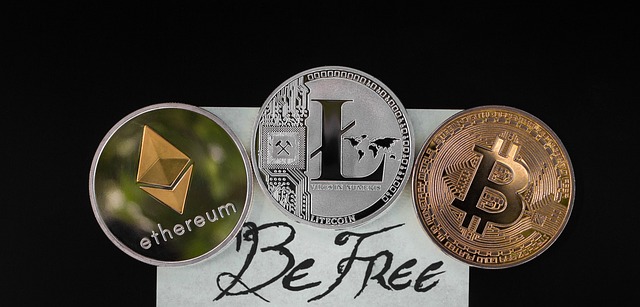The global cryptocurrency regulatory landscape varies widely, with some countries banning and others enthusiastically adopting crypto. Central banks and regulators face the challenge of balancing consumer protection, market stability, and the disruption caused by blockchain technology. A notable trend is the growing recognition of Decentralized Finance (DeFi) insurance options as DeFi platforms gain popularity. Regulatory bodies are developing guidelines for decentralized exchanges, smart contract auditing, and risk management to create a balanced environment that promotes innovation while safeguarding investors from vulnerabilities in the crypto market. The surge in DeFi's popularity has led to an urgent need for regulated DeFi insurance options to address its innovative yet risky nature, fostering stability and encouraging mainstream adoption.
In the rapidly evolving landscape of digital currencies, understanding the regulatory framework is paramount. This comprehensive guide delves into the global cryptocurrency regulation scene, shedding light on its complexities and implications. We explore Decentralized Finance (DeFi) – a disruptive force in financial services – and the unique challenges it presents for regulators. Furthermore, we investigate the emerging space of DeFi insurance options, examining how these innovative products can navigate regulated environments while offering enhanced protection to investors.
- Global Cryptocurrency Regulation: An Overview
- Decentralized Finance (DeFi) and Regulatory Challenges
- Exploring DeFi Insurance Options in a Regulated Environment
Global Cryptocurrency Regulation: An Overview

The global landscape of cryptocurrency regulation is a complex web, with each country adopting its approach to managing this digital asset class. Regulatory frameworks vary widely, from outright bans to enthusiastic embrace and support. Many nations are still grappling with how best to oversee cryptocurrencies, particularly as decentralized finance (DeFi) platforms offer innovative yet risky investment options. Central banks and financial regulators worldwide are balancing the need for consumer protection and market stability against the potential of blockchain technology to disrupt traditional financial systems.
One notable trend is the increasing recognition of the importance of DeFi insurance options. As DeFi platforms gain popularity, regulatory bodies are focusing on ensuring investor protection. This involves developing guidelines for decentralized exchanges, smart contract auditing, and exploring various risk management strategies. The goal is to create a balanced environment that fosters innovation while safeguarding investors from potential vulnerabilities in the cryptocurrency market.
Decentralized Finance (DeFi) and Regulatory Challenges

Decentralized Finance (DeFi) has emerged as a revolutionary force in the financial sector, promising greater accessibility and transparency through blockchain technology. However, this rapid innovation poses significant regulatory challenges for traditional financial authorities. One of the key areas is the provision of DeFi insurance options. As DeFi platforms offer various financial services akin to traditional banking, the need for robust risk management and protection mechanisms becomes paramount.
Regulatory bodies are grappling with how to oversee these decentralized systems while maintaining consumer confidence. The distributed nature of blockchain makes it difficult to implement conventional regulatory measures, such as central authority oversight or traditional insurance models. Consequently, regulators face the challenge of creating a framework that supports innovation in DeFi while ensuring financial stability and investor protection.
Exploring DeFi Insurance Options in a Regulated Environment

As cryptocurrency gains mainstream adoption, regulators worldwide are grappling with how best to integrate decentralized finance (DeFi) into existing financial systems while ensuring consumer protection and market stability. This has sparked a growing interest in exploring DeFi insurance options within a regulated environment. Traditional insurance models have been challenged by DeFi’s innovative yet often risky nature, where smart contracts govern transactions and there’s no centralized authority.
Regulators are now considering ways to facilitate the development of DeFi insurance products that align with existing regulatory frameworks. Such initiatives aim to mitigate risks associated with algorithmic failures or market volatility while fostering innovation. By offering regulated DeFi insurance options, consumers could benefit from enhanced security and peace of mind when engaging in decentralized lending, borrowing, or trading activities. This shift would also encourage mainstream institutions to more readily embrace the DeFi space, thereby driving further integration and growth.
As we’ve explored, navigating the regulatory landscape of cryptocurrency is complex, particularly with the rise of Decentralized Finance (DeFi). However, this evolution also opens doors to innovative solutions like DeFi insurance options. Balancing consumer protection and fostering innovation will be key as regulators worldwide adapt to this dynamic sector, ultimately shaping its future accessibility and stability. Understanding these trends and challenges is crucial for both industry participants and investors looking to stay ahead in the ever-changing world of digital assets.
